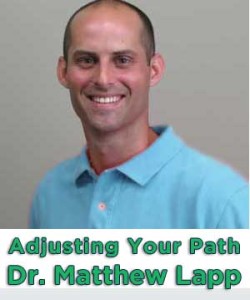We can learn to treat change as a gift instead of a setback
By Matthew Lapp, MS, D, Columnist, The Times
 Each day we encounter new challenges and opportunities, and have the ability to make new discoveries about ourselves and the world we live in. More and more often, people are finding both their personal and professional lives in a state of flux. The truth is, we can never be absolutely certain what life may present. During these uncertain times, maybe the only thing any of us can count on is that change is inevitable. Mastering the art of resilience allows us to adapt in the face of whatever life may present us with.
Each day we encounter new challenges and opportunities, and have the ability to make new discoveries about ourselves and the world we live in. More and more often, people are finding both their personal and professional lives in a state of flux. The truth is, we can never be absolutely certain what life may present. During these uncertain times, maybe the only thing any of us can count on is that change is inevitable. Mastering the art of resilience allows us to adapt in the face of whatever life may present us with.
Merriam-Webster’s defines resilience as, the “ability to recover from or adjust easily to misfortune or change” but my preferred definition is that of author Seth Godin. He states that resilience is the ability to “survive and thrive in the face of change.” Since change is most certainly going to occur, the goal becomes to adapt to and maybe even anticipate those changes so that we can respond as effectively and successfully as possible.
The question then becomes, how do we work towards creating a level of resilience that ensures our ability to thrive in the face of changing life circumstances and adversity? There’s a simple, three step process that can shed some light. The first step is to obtain awareness. By paying attention to what is going on inside our bodies, within our life context, and in relation to the world, we are better able to respond in an effective and sustainable manner.
For example, whether good or bad, have you ever had a “gut feeling” about something? Most people can remember a time when a feeling prevented them from making a mistake or led them to a positive outcome. Having a general awareness about our life circumstances is similar. There are always messages and bits of information around us, it’s just a matter of identifying them. The more you pay attention to your body or life experience and in the world around you, the more information you can obtain. Thus, allowing you to make more informed choices in life.
The next step is to acknowledge what is true in any given situation without judgement of it. Lets say you have a job. It’s not the job you aspired to as a child. It’s not something you’re passionate about or even something you particularly care for, but it pays the bills. Now lets imagine that you lose your job for one reason or another. Depending on your state of mind, you may respond to this situation in various ways. You could get mad, complain, or sit in a dark room thinking “why me?” You could go look for another job with similar attributes, or you look for job that brings you joy and happiness.
In each situation what is true is the same. You no longer have the job that you once had. The meaning or judgement you assign to that truth is in your hands. You are the author of that “story.” At this stage, the most important thing is to separate the truth from the story.
The final step is acceptance. For most people, this step is the most difficult but also the most empowering. It may be very difficult to accept changes and challenges (especially when they are unwanted!) in our lives. We may become angry or frustrated or resist them altogether. No matter, the change happened and how we respond to it will dictate our future success or failure. This stage also influences our ultimate resilience level. At this stage, we have the ability to accept the change as a gift or lesson. By doing so, we can gain wisdom about ourselves, and then apply that wisdom in ways that benefits ourselves and the people we care about.
 Even people who have experienced tragic life events, terminal illness, or the loss of loved ones have reported a profound sense of gratitude for the lessons they’ve learned as a result of the event. Accepting that which is true allows us to move on to the next life opportunity. And, completing the process of AAA builds greater resilience so that the next time a life change occurs, you are better able to respond to it in a manner that produces a successful outcome.
Even people who have experienced tragic life events, terminal illness, or the loss of loved ones have reported a profound sense of gratitude for the lessons they’ve learned as a result of the event. Accepting that which is true allows us to move on to the next life opportunity. And, completing the process of AAA builds greater resilience so that the next time a life change occurs, you are better able to respond to it in a manner that produces a successful outcome.
Matthew Lapp, MS, DC is the owner of Salus Chiropractic Studio in Thorndale. For more information, visit him on the web at http://www.thorndalechiropractor.com/






